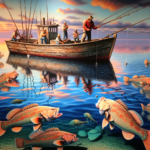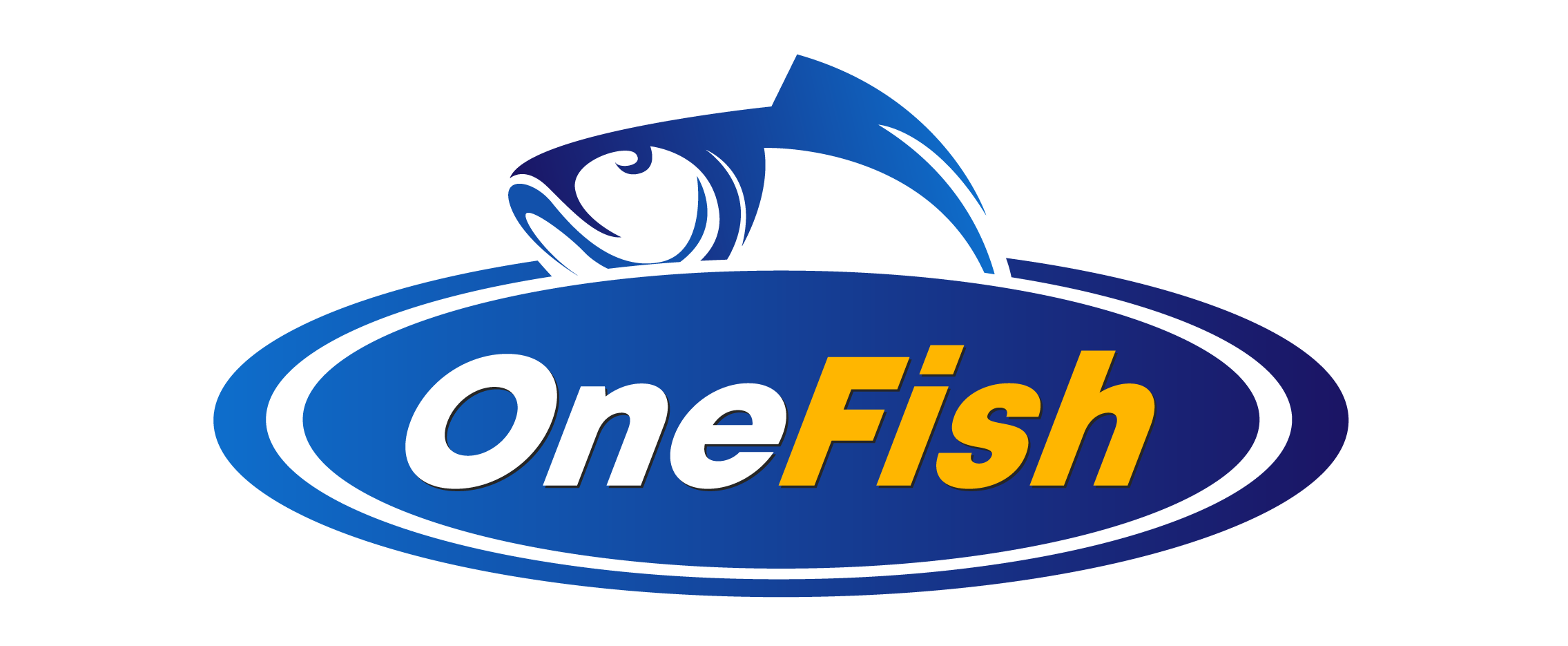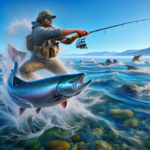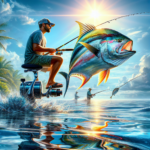Grouper Fishing in Florida’s Atlantic Coast

Introduction
Did you know that the Atlantic coast of Florida is home to some of the most sought-after grouper fishing spots in the world? Whether you’re a seasoned angler or a novice looking to try your hand at catching these formidable fish, Florida’s Atlantic coast offers a unique and rewarding experience.
This article will delve into the intricacies of grouper fishing along Florida’s Atlantic coast, covering everything from the best fishing techniques and gear to the top fishing spots and seasonal considerations. We’ll also touch on the historical and cultural significance of grouper fishing in this region, as well as provide practical tips and safety guidelines to ensure a successful and enjoyable fishing trip.
Understanding the nuances of grouper fishing in this area is crucial for anyone looking to make the most of their fishing adventure. Whether you’re aiming to catch a trophy-sized grouper or simply enjoy a day out on the water, this guide will equip you with the knowledge you need.
Background/Context
Historical or Cultural Significance
Grouper fishing has long been a staple of Florida’s fishing culture. Historically, grouper were a vital food source for indigenous peoples and early settlers. Over the years, the sport of grouper fishing has evolved, becoming a popular recreational activity that attracts anglers from around the globe. The cultural significance of grouper fishing is evident in local festivals, tournaments, and the community’s deep-rooted respect for these impressive fish.
Geographical Overview
Florida’s Atlantic coast stretches from the northeastern tip of the state down to the southernmost point, encompassing a diverse range of ecosystems. The region’s warm climate, coupled with its rich marine biodiversity, makes it an ideal habitat for various grouper species. The coastal waters are characterized by coral reefs, rocky outcrops, and underwater ledges, all of which provide excellent hiding spots for grouper.
Key Points/Details
Fishing Techniques
Technique Overview
Grouper fishing typically involves bottom fishing techniques, as these fish are known to dwell near the ocean floor. Common methods include using heavy tackle to drop baited hooks directly to the bottom, as well as trolling and jigging. Live bait, such as pinfish or squid, is often preferred, but artificial lures can also be effective.
When and Where to Use
The best time to fish for grouper on Florida’s Atlantic coast is during the cooler months, from late fall to early spring. During this period, grouper tend to move closer to shore, making them more accessible to anglers. Prime fishing spots include offshore reefs, wrecks, and ledges, particularly those located in deeper waters ranging from 60 to 200 feet.
Recommended Gear
- Rods: Heavy-duty rods capable of handling large fish.
- Reels: High-capacity reels with strong drag systems.
- Lines: Braided lines with a high pound-test rating.
- Bait: Live bait such as pinfish, squid, or artificial lures designed for bottom fishing.
Species Information
Species Overview
Several grouper species can be found along Florida’s Atlantic coast, including the Gag Grouper, Red Grouper, and Black Grouper. These species are known for their robust size and strength, making them a challenging and rewarding catch for anglers. Grouper are typically found in rocky or reef environments where they can ambush prey.
Best Practices
To successfully catch grouper, it’s essential to use the right techniques and gear. Bottom fishing with live bait is highly effective, as grouper are opportunistic feeders. It’s also important to be patient and persistent, as these fish can be elusive. Anglers should focus on areas with plenty of cover, such as reefs and wrecks, where grouper are likely to be hiding.
Location Information
Top Fishing Spots
- St. Augustine: Known for its offshore reefs and wrecks, this area offers excellent grouper fishing opportunities.
- Daytona Beach: The offshore ledges and artificial reefs here are prime spots for catching grouper.
- West Palm Beach: This region is famous for its deep-sea fishing, with numerous reefs and wrecks teeming with grouper.
- Fort Lauderdale: The waters off Fort Lauderdale are home to a variety of grouper species, making it a popular destination for anglers.
Regulations and Licenses
Before heading out, it’s crucial to familiarize yourself with local fishing regulations. In Florida, anglers need a valid saltwater fishing license, which can be obtained online or at local retailers. Additionally, there are specific regulations regarding grouper fishing, including size limits, bag limits, and seasonal closures. It’s essential to check the latest regulations from the Florida Fish and Wildlife Conservation Commission (FWC) to ensure compliance.
Seasonal Considerations
Seasonal Variations
Fishing conditions along Florida’s Atlantic coast can vary significantly throughout the year. During the cooler months, grouper tend to move closer to shore, making them more accessible to anglers. In contrast, the warmer summer months may see grouper moving to deeper waters. Weather conditions, such as storms and hurricanes, can also impact fishing, so it’s important to monitor forecasts and plan accordingly.
Best Times to Fish
The optimal time for grouper fishing is from late fall to early spring when water temperatures are cooler, and grouper are more active. Early morning and late afternoon are generally the best times of day to fish, as grouper are more likely to be feeding during these periods.
Events and Tournaments
Event Overview
Florida’s Atlantic coast hosts several fishing tournaments and events throughout the year, many of which include categories for grouper. These events offer a great opportunity for anglers to test their skills and compete for prizes. Notable events include the Fort Lauderdale Billfish Tournament and the West Palm Beach Fishing Club’s annual tournament.
Preparation Tips
To prepare for a fishing tournament, it’s essential to practice your techniques and familiarize yourself with the tournament rules. Ensure your gear is in top condition, and consider scouting the fishing area in advance to identify potential hotspots. Staying informed about weather conditions and tides can also give you a competitive edge.
Tips and Best Practices
General Tips
- Patience is Key: Grouper can be elusive, so patience and persistence are crucial.
- Use Live Bait: Live bait is often more effective than artificial lures for attracting grouper.
- Focus on Structure: Grouper are typically found near reefs, wrecks, and other underwater structures.
Avoid Common Mistakes
- Using Inadequate Gear: Ensure your gear is strong enough to handle large grouper.
- Ignoring Regulations: Always check and follow local fishing regulations to avoid fines and penalties.
- Overlooking Safety: Prioritize safety by wearing life jackets and monitoring weather conditions.
Advanced Techniques
- Deep Dropping: This technique involves dropping bait to deeper waters where larger grouper are often found.
- Vertical Jigging: Using heavy jigs to mimic the movement of prey can entice grouper to strike.
- Chumming: Creating a chum slick can attract grouper to your fishing area, increasing your chances of a catch.
Gear and Equipment Recommendations
Essential Gear
- Heavy-Duty Rods: Sturdy rods capable of handling large fish.
- High-Capacity Reels: Reels with strong drag systems and ample line capacity.
- Braided Lines: High pound-test braided lines for strength and sensitivity.
- Live Bait: Pinfish, squid, or other live bait preferred by grouper.
Optional Gear/Upgrades
- Electric Reels: For deep dropping, electric reels can make the process easier and more efficient.
- Fish Finders: Advanced fish finders can help locate underwater structures and schools of fish.
- Chum Bags: Using chum bags can attract grouper to your fishing area.
Where to Buy or Rent
Local bait and tackle shops along Florida’s Atlantic coast offer a wide range of fishing gear and equipment. Popular stores include Bass Pro Shops, West Marine, and local independent retailers. Many shops also offer rental options for those who prefer not to invest in their own gear.
Safety and Conservation
Safety Tips
- Wear Life Jackets: Always wear a life jacket when fishing offshore.
- Monitor Weather Conditions: Keep an eye on weather forecasts and avoid fishing during storms or rough seas.
- Stay Hydrated: Bring plenty of water and stay hydrated, especially during hot weather.
Conservation Practices
- Catch and Release: Practice catch and release to help preserve grouper populations.
- Respect Regulations: Follow local fishing regulations, including size and bag limits.
- Avoid Overfishing: Be mindful of the impact of overfishing and strive to fish sustainably.
Planning Your Trip
Accommodations
There are numerous accommodation options along Florida’s Atlantic coast, ranging from budget-friendly motels to luxury resorts. Popular choices include beachfront hotels, vacation rentals, and campgrounds. Some recommended places to stay include the Hammock Beach Resort in Palm Coast, the Hilton Daytona Beach Oceanfront Resort, and the Marriott Singer Island Beach Resort in West Palm Beach.
Travel Tips
Florida’s Atlantic coast is easily accessible by car, with major highways such as I-95 running along the coast. For those flying in, major airports include Jacksonville International Airport, Daytona Beach International Airport, and Palm Beach International Airport. Renting a car is recommended for exploring the region and accessing various fishing spots.
Additional Activities
In addition to fishing, Florida’s Atlantic coast offers a wide range of activities for visitors. Popular options include beachcombing, snorkeling, scuba diving, and exploring local attractions such as the Kennedy Space Center and historic St. Augustine. The region also boasts numerous parks and nature reserves, perfect for hiking and wildlife watching.
Frequently Asked Questions (FAQs)
Do I need a fishing license to fish for grouper in Florida?
Yes, a valid saltwater fishing license is required for grouper fishing in Florida. Licenses can be obtained online or at local retailers.
What is the best time of year to fish for grouper on Florida’s Atlantic coast?
The best time to fish for grouper is from late fall to early spring when water temperatures are cooler, and grouper are more active.
What type of bait is best for catching grouper?
Live bait such as pinfish or squid is highly effective for catching grouper. Artificial lures can also be used but may not be as successful.
Are there any size or bag limits for grouper in Florida?
Yes, there are specific size and bag limits for grouper in Florida. It’s important to check the latest regulations from the Florida Fish and Wildlife Conservation Commission (FWC) before fishing.
Conclusion
Grouper fishing along Florida’s Atlantic coast offers a thrilling and rewarding experience for anglers of all skill levels. By understanding the best techniques, gear, and locations, as well as adhering to local regulations and conservation practices, you can make the most of your fishing adventure. Whether you’re aiming to catch a trophy-sized grouper or simply enjoy a day out on the water, the knowledge and tips provided in this guide will help you succeed.
So, grab your gear, head to the coast, and get ready for an unforgettable grouper fishing experience!




